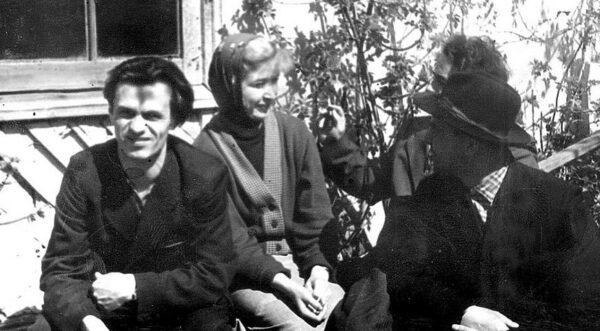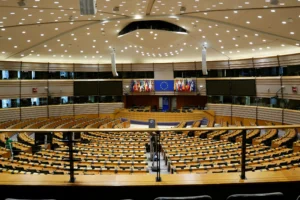Max Weber understood a nation as a status-economic organization united by a common historical memory and the fight for the prestige of power and culture against other nations. Ernest Renan viewed the nation as a form of morality, the possession of a common rich legacy, the consent to live together, and the will to continue to value the heritage which all hold in common. Benedict Anderson rebelliously declared nation an imagined political community, inherently limited and sovereign. Joseph Stalin defined a nation as not a racial or tribal but a historically constituted community of people with a common language, a common territory, a common economic life, economic cohesion, and a common psychological make-up.
Surprisingly, the United Nations uses the term nation rather than the state to refer to sovereign states across the globe, as seen in Article 1, Clause 2 of its Charter: “develop friendly relations among nations based on respect for the principle of equal rights and self-determination of peoples.” However, we could easily argue that not all nations represented in the UN are recognized as such – it is only the nation-state that prevails to earn recognition. Scots, who at one glance fit in almost all too broad and too divergent definitions of what constitutes a nation, are not and will likely never be recognized as a UN member state, no matter the degree of their self-determination.
Lately, so many speak of being a nation. It suffices to glance at the world wars to be reminded of how this single word started wars and managed to justify the eradication of cultures from the map. To think that such a rich legacy of destruction and suffering is rooted in the origin of life itself – birth, as the Latin roots reveal. First used in the Roman Empire to refer to a group of men related by birth or a native community of foreigners, the word evolved to signify groups of people with similar languages and cultures in medieval universities across Europe. Following the Papal Schism at the end of the 14th century, nationes began to refer to representatives sent from cities, later denoting the elite and aristocracy.
Today, the term nation serves to describe the view and structure of governance we all grew accustomed to – the nation-state. The entire post-World War II international system of governance has been built around this concept, reinforcing the administration of nation-states, almost as if the aim were to trap us within this national structure, just as globalization suddenly began to pose a threat. And yet, very few states represent a nation. This fact is easily proven by a simple observation. It suffices to take a walk in the park to notice that reality diverges from the theoretical definitions of a nation, and the justifications politicians provide for establishing nation-states do not withstand the trials of time. The indecisiveness among political thinkers to define a nation makes me question what came first – the idea and the feeling of a national identity or the predatory state looking for a way to justify its monopoly of coercive force and economy to constrain the people and feed off their freedoms to expand its own?
Whether the concept of a nation is imagined or inherent to human existence, its impact is extremely felt, with no exceptions, when it falls into the hands of more pragmatic thinkers like Joseph Stalin. These individuals enjoy exercising their theories and use such ideas to justify the bright red spilled on pavements and silver bullets in the backs of heads.
Given the incapacity of political thought to be concrete and the constant struggle to rationally deduce definitions of fundamental political components, why study politics as a science in the first place? Why force the scientific method onto concepts that resist quantification? We analyze and study philosophy without the need to label it a science, and yet it has proven to be a profound field of study, no less valuable than natural sciences like physics and chemistry. I would argue that philosophy has been key in determining the ways people politically organize themselves, reflecting the historical context in which it develops. Philosophy, just like political thought, has always been the product of the historical context in which it develops.
Great philosophers’ ideas, such as those of Jean-Paul Sartre’s Existentialism and Albert Camus’ Absurdism, both originated from the disastrous events in France during and immediately after World War II. After enduring an invasion and occupation by Germany in 1940, followed by extensive bombardments by the Allied Forces that obliterated more than 15 cities, most hope was annihilated. In such times, where everything is dead and only hope is left to barely persist and only to die last, a human has only one last question to ask: “What does all this really mean? What is the meaning of life?” There come the origins of Sartre’s famous discourse on humans being intrinsically burdened with freedom, choice, and the responsibility that follows. Sartre argues that people must embrace freedom and reward their existence with subjective meaning. Meanwhile, Camus advocated for the acceptance of life’s meaninglessness, urging individuals to dare to act without seeking any meaning beyond the mere fact of their existence and the reality of being alive.

Political thought develops in a similar way: it is the context that guides political research. Take one of the most cited papers in 2023, published by the American Journal of Political Science. The research article “Strategic Authoritarianism: The Political Cycles and Selectivity of China’s Tax-Break Policy” authored by Ling Chen, an assistant professor at the School of Advanced International Studies at Johns Hopkins University, and Hao Zhang, a PhD candidate in political science at the Massachusetts Institute of Technology, aims to exhibit the “ways that governments, politicians, and parties manipulate economic policies in an opportunistic manner to cater to the preferences of constituents.” While extensive research exists on the topic of political cycles in democracies and hybrid regimes, little has been done on the behavior of political cycles in authoritarian regimes, where elections play a weaker role. Their case study focuses on the provision of business tax cuts to firms in China.
Ling Chen, originally from China and now an acclaimed researcher, has won the 2022 American Political Science Association Award for the best comparative policy paper and has participated in political discourse by giving congressional testimony before the US-China Economic and Security Review Committee. Her research has been featured in multiple media outlets including the New York Times, Foreign Policy, Foreign Affairs, and the Washington Post, and has been included in the USCC Report to Congress. As for her field of research, it comes as no surprise that she consistently continues researching the relationship between capitalism and the authoritarian state in China. The very system of authoritarian capitalism she studies has shaped her in ways unimaginable to someone from a different context, embedding within her the seeds that have nurtured her worldview. She is both the product of this system and now the analyst studying its mechanisms.
So, why does this matter? It matters because Ling Chen and so many other acclaimed researchers manifest the argument against studying politics as a science. Instead, it should be studied and practiced as a vocation, fueled by personal circumstances and the context of one’s struggles as a citizen of their political context in the globalized world structure. In the study of politics, you never get to be a detached observer, like in a chemistry lab where scientists observe reactions unfold. In politics, you are the reaction.
This argument is supported by the lingering, deep impact of political thought exemplified by works such as Hannah Arendt’s “The Origins of Totalitarianism,” Plato’s “The Republic,” and John Rawls’ “Justice as Fairness.” These highly influential works came from the authors’ crucial personal experiences with the world, being precisely the reason for their enduring influence. Such works of political thought show that politics cannot be studied through a reductionist approach that seeks to quantify ideas. Instead, politics is a vocation – a commitment to observe and analyze the influence of political forces in every facet of life. It requires going beyond calculating correlations and regression tables, delving deeply into the human mind, speculating, assuming, and applying rational reasoning through empirical observations and constant hybrid analysis. This approach stands in complete contrast to the mechanical nature of scientific categorization.
It also explains how previous political minds developed the contractarian and predatory views of the state and why there is currently no discussion of a potential third perspective. Rousseau lived through the French Revolution, which influenced his conception of the general will. This was not merely a theoretical construct but a direct example derived from France’s unique historical context. The same concept of the general will is unlikely to apply in Asia, where cultural tendencies are vastly different.
However, the conventional approach of teaching politics as a science has become entrenched in today’s classrooms. As discussed earlier, politics, unlike the natural sciences, defies easy categorization into neat, predictable patterns. Attempting to force it into the rigid framework of the scientific method risks overlooking the very essence of its contextual complexity. Using statistics to show correlations, such as the likelihood of people protesting, reduces the individual will to mere numbers. This perspective, as explained in collective action theory, rejects any notion of personal agency, which is fundamentally flawed. It leads us and the public to believe that our actions as political agents are dictated by external factors, stripping us of our power to influence politics. In this narrative, numbers unjustly assume authority over human decision-making.
So there I was in my Government and Comparative Politics class, struggling to come up with potential reforms for Hungary to improve its system based on the electoral theories we had previously discussed in class. The idea of blatantly applying a theory to a real community of people using a simplistic check-and-cross system felt deeply flawed and dystopian. If your goal is to make the parliament more proportionate, just enlarge the district magnitude; if your goal is to weaken parties, just change the ballot structure to an open list. The idea of simply having to adjust the variables without considering the origins of the electoral system and the historical and cultural context of its people made me self-conscious of the current trend of automatization and the search for supreme and absolutely definitive answers to every issue, even those as intrinsic to human existence as a political organization. Aristotle famously called humans political animals’, yet here we are, choosing to treat something as inherently human as a societal organization as if it could be resolved with mechanical tweaks. This reductionist approach neglects the complexity and the role of context in politics, ultimately stripping it of its human essence.

Then, I was told to evaluate judicial reforms in another country using the same theoretical frameworks. I felt constrained, as if I were in a straightjacket, much like the one Feynman described—yes, Feynman, the brilliant physicist, and professor—who said that imagination must be confined by what we already know about the world. But does this really apply to political science? What do we truly know about the world? Didn’t we just study last semester that, according to Socrates, the awareness of our ignorance is the first step toward knowledge? When we try to deduce theories in a pure model sense for broader application, we essentially create a one-size-fits-all recipe. But people are different and unique – unlike billions of electrons (though I imagine some physicists might take issue with me calling electrons the same). The point is that human behavior and societies are far too complex and varied to be reduced to simple, uniform models.
While comparative politics continues to increasingly rely on experimental methods to establish cause-and-effect relationships, this trend often neglects context—a foundational reason for the field’s existence in the first place. Comparative politics thrives on understanding political systems within their unique contexts. Have you ever heard of comparative chemistry? Do plants grow differently in Brazil versus Canada in a way that demands a separate field of study? Should we teach comparative geology, suggesting fundamentally different ideas on what geology is and its definitions? Instead of expanding our understanding, we are limiting our ability to analyze and appreciate the diversity of political systems. This neglect undermines the essence of comparative politics, which is to recognize that political rules and systems are deeply influenced by their unique contexts and cannot be universally applied. But most importantly, politics does not follow universal laws like physics does because we are the ones who create the rules. In politics, no external rules apply beyond those we devise through our collective will and societal consensus.
Surprisingly, political systems and institutions do not act autonomously; individuals do. By equating individuals with inert, soulless entities, we oversimplify and dehumanize the intricate realities of political behavior. This reductionist view negates human motivations behind actions like protests, which are not merely about self-preservation but often about national pride and the ideological commitment to protect future generations. If politics were purely scientific, why would individuals become political prisoners for the sake of poetry, music, or writing verses, like Symonenko did? “No matter how you twist it, it will always be the same. Someone should have told the torturers, I thought. You can execute the brain where ideas were wrought; you cannot execute a thought.” wrote Symonenko in his poem “Advice for Tyrants.” Vasyl Symonenko, a prominent Ukrainian poet of the 1960s, despite repression and state abuse, revealed the truth about the erasure of Ukrainian identity during Soviet rule, whatever the cost. His words show why people fight for freedom of thought and the natural compulsion to protect our descendants. If political scientists can ostensibly calculate a nation’s progress devoid of context, categorizing it as developed or undeveloped and imposing arbitrary standards, why do we still strive for justice or to be the change?

Perhaps the problem with the current political science community is the underestimation of the people’s will to sacrifice their lives for meaning. They calculate the numbers and declare Russia the second most powerful army in the world without considering the interactions within it, the history of Russia, or the detailed context that reveals the truth about the vulnerability of armies. Numbers alone are often misleading in politics. When political scientists were surprised by Ukraine’s resistance, they wrongly assumed it was an exception to the theory. The reality is that their theory is not universally applicable. Numerating the world and reducing it to a code is simply wrong. Now, as theorists await Ukraine’s defeat, they will once again be proven wrong. As the saying goes, “any good hypothesis must be falsifiable,” but politics are not hypothetical, they are very real.
Political theories arise from specific historical and cultural experiences. For instance, the contractarian view, emphasizing mutual agreement and consent, and the predatory view, focusing on the state’s coercive nature, both emerged from distinct historical contexts. Yet, the absence of a third, alternative view of the state in the current discourse suggests that we are once again in need of learning what it is like to lead a life of political vocation.
Perhaps earlier thinkers understood politics better than we do today because their whole lives revolved around them. It was a vocation and not something you could learn in a textbook. In modern political science, we are beginning to overlook the deeper, often cultural dimensions of human behavior in favor of quantifiable data. Early political philosophers, through their direct experiences and observations, grasped the nuances of political dynamics in ways that our current, more rigid scientific approaches fail to capture.
Insofar as the discussion on defining a nation goes and the origins of prominent thinkers’ theories and ideas, perhaps the most important question is to pause and reflect on why we see the world the way we do and what unique insights our perspectives can offer to the world. Learn to recognize and distinguish your own perspectives from those imposed upon you or those you have grown accustomed to. Learn to see the world through your own eyes and allow them to tell you a story that others missed. As José Ortega y Gasset explained, the whole truth of the world only emerges when all perspectives, ideas, and stories come together. So begin by striving to add your own perspective to this mosaic to complete the truth about the world, and add the missing piece of the puzzle that only you can provide.

Featured image by: Roger Ebert




